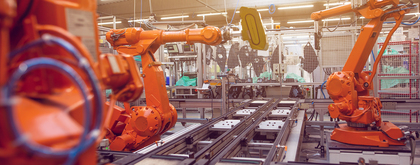Wat is een MES?

Verbeter de betrouwbaarheid van de productie en de traceerbaarheid van producten met gecentraliseerde processen en geautomatiseerde gegevensverzameling. In dit artikel gaan we dieper in op wat een MES is, wat de voordelen zijn en waarom het nodig is in een productieomgeving.
What does MES stand for?
MES stands for Manufacturing Execution System, also known as a production execution system. It is an integrated software platform used in production environments to manage, monitor and optimize the execution of production processes. An MES acts as a bridge between business planning (Enterprise Resource Planning - ERP) and the shop floor, where actual production takes place.
The main purpose of a MES
The main purpose of an MES is to improve production efficiency, product quality and regulatory compliance. The MES software provides information that allows decision makers to realize an efficient and optimal production process. It collects real-time data from the shop floor, such as machine performance, inventory levels, labor hours and production orders, and translates this data into actionable information for decision-making and process improvement.
Some functions of a MES are:
- Planning and Scheduling: MES helps in creating production schedules and allocating resources, such as machines and personnel, to achieve production goals.
- Work Order Management: It tracks and manages individual production orders, including scheduling tasks, assigning materials and tracking progress.
- Data Collection: It collects real-time data from machines and sensors on the shop floor to monitor and measure production activities.
- Quality Management: It monitors product quality and performs checks to minimize defects and ensure production consistency.
- Traceability: MES can track the complete production history of individual products, enabling traceability for quality control and regulatory compliance.
- Reporting and Analysis: It generates reports and analyses to provide insight into the performance of production processes and to identify areas for improvement.
Why is a MES necessary?
By using an MES, manufacturers can better manage production processes, increase efficiency, reduce lead time, optimize inventory levels and improve overall productivity and profitability. It has become an important part of modern manufacturing environments to meet the increasingly complex and competitive demands of the industry.
In short, with an MES, improve production reliability and product traceability with centralized processes and automated data collection. Substantiate your production process with hard data and thus promote both your productivity and profitability.
SST Hardware is happy to help you!
At SST Hardware we have extensive experience in developing a custom MES. We can therefore provide you with excellent support in both devising and developing an MES, tailored to your specific situation. This means that your production capacity can also be used optimally. Would you like to discuss it with us without obligation? Then please contact me.
Hoe kunnen wij jou helpen?

